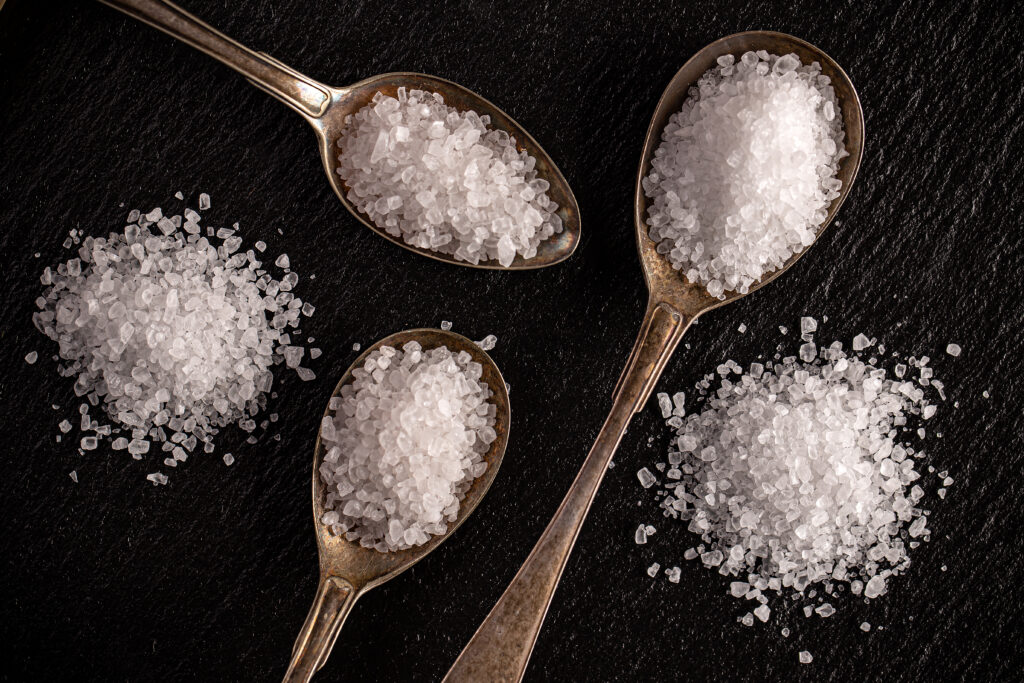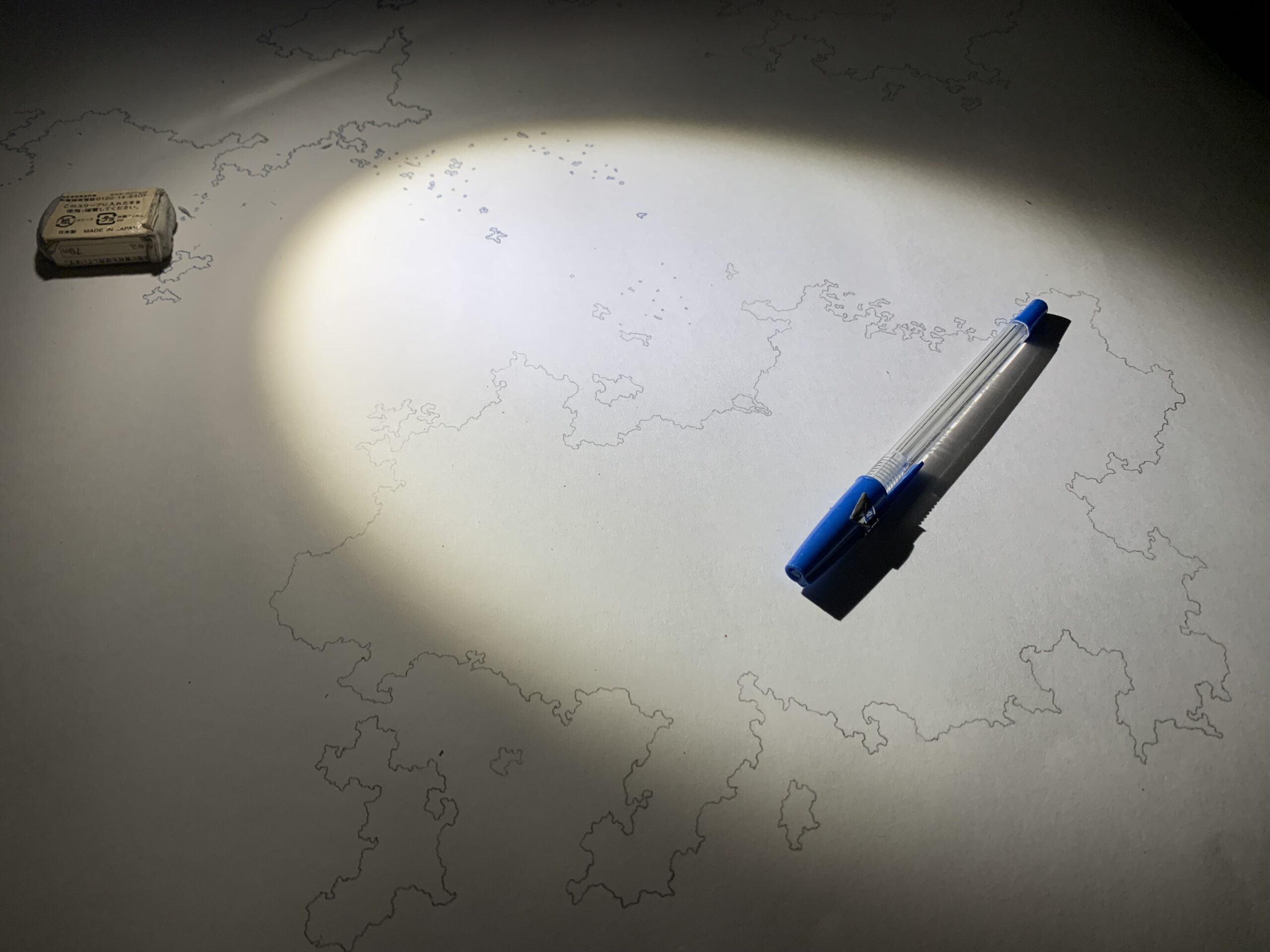
by maria g., ’29
“No le pongas demasiada sal!” My mom, anticipating a bitter taste from the soup, alarmed me. Yet curious like a five-year-old, I felt it was my mission to discover the secrets behind the little white container in front of me. Standing still, making noise at a shake, laid the salt. Deciding to empty half the recipient, my mom and I laughed the second I tasted our alphabet soup.
Composed of primarily sodium chloride, salt is a staple for food and culture. At the same time, the element is an equal symbol for health, preservation, and connection. Seen time again in history, salt was a compensation for Roman Empire’s soldiers, a source of currency for ancient China, and an exchange in the Gulf Coast from the Olmec people. Globally, a little of it goes the long way.
Ironically, for the entirety of my early adolescence, I underestimated the value of salt in the human body. How could such a small grain be worth immense value? It appeared like an exaggeration. Despite my assumption, fainting in the presence of heat conversely transformed this mindset. Then, I was not surprised to know I battled with low blood pressure. To prevent injuries, I was advised to intake balanced meals. Most importantly, moving from one state to another forced me to keep track of possible imbalance in my body at the end of my junior year.
With an opposing view of the country, I was intrigued at smoky undertones of sea salt in brown rice, at a piece of boiled egg with table salt, or at a pinch of pink salt in a fresh avocado. Unable to eat foods with high sodium, I grew appreciation at the appearance of soul meals in new places. Mere glimpses at dishes fueled my taste examinations. While exchanging interactions with a diverse school population throughout lunch time, I met teenagers and teachers with a history of resilience, migration, and adaptation. Fascinated by the mural of cultures, each little grain of salt in my vision embodied human connection, presenting roots and traditions with pride. My new communities were an open door to discover distinct salt flavor profiles.
Throughout my personal progress of adaptation with moving, I discovered my love for the range of policies, economies, and customs bounded in the world. Enamored by the study of international relations, my pursuit for educating on the states of societies, financial positions, dearth of rights, and extent of access to resources arrived naturally. In a similar way that I enhance my knowledge of salt’s contributions, I am committed for my expatiating my passion towards diplomacy. Exhibiting my devotion for the protection of interests and sustaining peace, the epiphany of helping not just my home countries in the US and Mexico but vulnerable groups at developing countries became my mission.
At the gaze of a welcoming sun, I practice addressing and collaborating changes particularly towards the rights of children and teenagers in my community. Implementing the first UNICEF Club at my school and district, I advocate for young children that are underrepresented, mistreated, yet are equally deserving of education and a bright tomorrow. By promoting the organization’s mission, I aspire to transform beyond fixed generational chains of knowledge. Similarly, my engagement with my state’s Civic Education Coalition, enlarges my infatuation of governance, civic education, and establishing a democratic future. Through my continuous experience with domestic relationships, I prepare for connections and transformations at a larger global scale.
As a person with a close connection to salt, its presence revolutionized my life purpose. Now, every grain of salt is an insight of diversity in our world and human interactions. Appreciating the intricate connection between individuals and nations, salt awakened my passion for revealing paths with solutions. In fact, I consider salt’s impact on Earth as an embodiment of motivation for building systematic change. Salt is truly a symbol of our globe’s shared essence.
Admissions Committee Comments
In her essay, Maria uses salt as a driver to examine her growing awareness of communities and perspectives different from her own. This emerging cognizance serves as a starting point for her jump into areas of impact that focus on service, diplomacy, and collaboration with others. Collaboration and conversation across diverse perspectives is an important way that students at Hopkins learn and become engaged members of a global society. Maria uses her essay to effectively show how she is prepared to participate in that very type of discourse and action-oriented college experience that Hopkins provides.
Maria G.“Before writing my essay, I knew I wanted to describe an element that emphasized my values, interests, and passions in an abstract yet profoundly universal way. I recalled my mom’s comment, ‘You are the salt of the earth.’ I made sure to spend time connecting salt to my story and the person I continue to aspire to be. I felt joy writing my essay, making sure I never rushed or hurried an idea, but rather, wrote it cohesively and at peace.”





